Yeh fasal umeedon ki hamdam,
Iss baar bhi ghaarat jaye gi,
Sab mehnat subhon shaamon ki,
Ab kay bhi akaarat jaye gi
(This crop of aspirations
will be ruined once again,
the toil of day and night
will be wasted another time.)
(Faiz, Montgomery Jail, 1955)
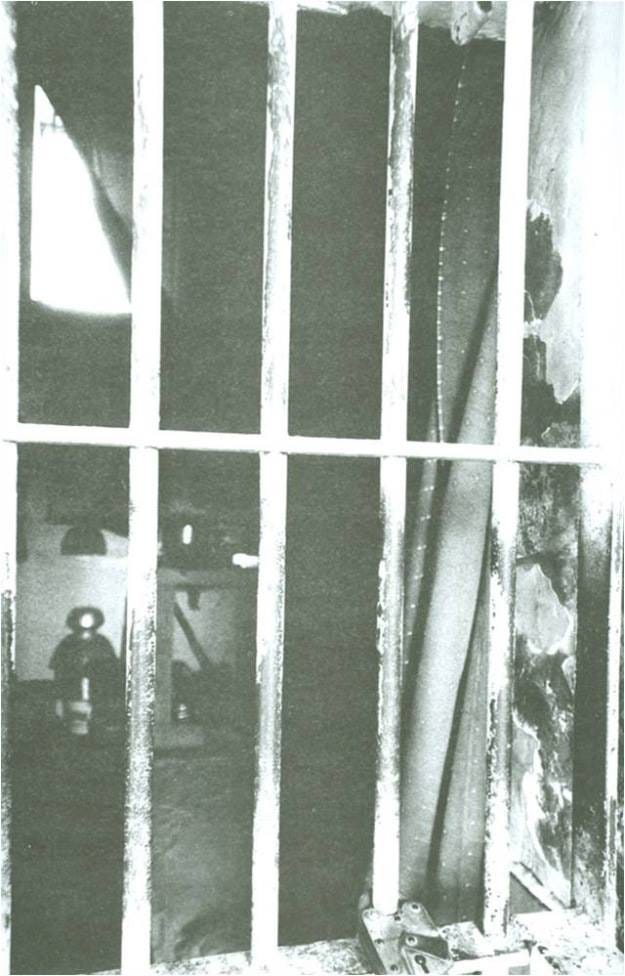
The year 2007 was eventful in Pakistan’s recent history. Political upheaval coupled with a rise in terrorism and a lawyers’ movement for the restoration of the judiciary gripped the country for most of the year. Musharraf, the military dictator, had forcibly removed the Chief Justice of Pakistan — sparking a movement led by lawyers across the country. Amidst all this kerfuffle arose a new band called ‘Laal’ with their song ‘Umeed e Seher’ (Hope for a new Dawn). The song became a sort of anthem for the lawyers’ movement alongside slogans against military dictatorship. The song was based on a poem written by Pakistan’s foremost progressive poet Faiz Ahmed Faiz and the band consisted of young academics who openly declared themselves Marxists. One of the band members was the General Secretary of a Communist Party in Pakistan. A communist party in Pakistan? That seems like an oxymoron, does it not?
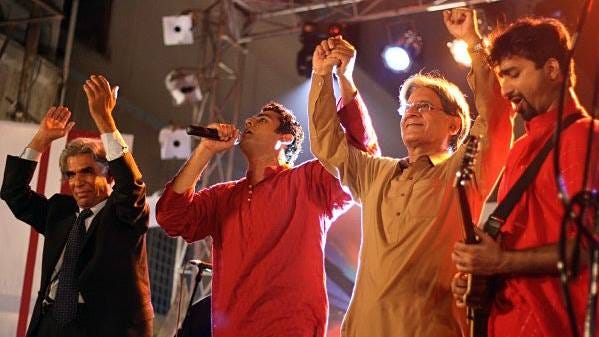
Today, the international media has no space for stories that contradict the dominant narrative of Pakistan as a fountainhead of extremism. In order to understand the current trajectory of Pakistan, it is imperative to discover the alternative discourse that existed in the days gone by. While it is an established fact that the All India Muslim League played a pivotal role in the movement that led to the 1947 Partition of India, the contributions of the Communist Party of India are often neglected in this regard. The Communist Party of India (CPI) was established in the third decade of the twentieth century. Initially, the CPI aligned itself with the progressive section within the Indian National Congress consisting of people such as Jawaharlal Nehru, Subhas Bose and Jayprakash Narayan. CPI adopted a ‘United Front’ tactic and sought positions within the structure of Congress. This relationship remained intact till the Second World War (WWII).
In 1942, the All India Congress Committee (AICC) met in Bombay and passed a resolution condemning the British involvement in the war. All communist members of AICC voted against the resolution because the Soviet Union had entered the war by that time. This was a momentary divorce between the two parties and CPI sought other allies in their anti-fascist stance against Germany. By that time, the Muslim League had decided to support the British government’s war effort and proposed the formation of ‘Pakistan’, consisting of the Muslim-majority areas in British India. The British government and the Muslim League were the unlikely ideological partners that the CPI decided to support. In 1942, the CPI held a meeting of its central committee during which G.M. Adhikari presented a resolution indirectly endorsing the idea of ‘Pakistan’. Adhikari viewed Muslim nationalism as a reflection of uneven development of the bourgeoisie amongst the Muslim masses in British India. In an article published in the CPI’s Urdu newspaper Qaumi Jang, Sajjad Zaheer (member of CPI’s central committee) praised the Muslim League faction in Sindh for pursuing progressive politics.
The Muslim League never enjoyed electoral success in the province of Punjab before Partition and the Muslim-majority province voted overwhelmingly in favour of the Unionist Party that ruled the province during the years 1936–1946. Before the 1946 elections, the CPI asked Muslim communists based in Punjab (including Mian Iftikharuddin, Daniyal Latifi and Abdullah Malik) to support the Muslim League in their electoral efforts. There was, however, a reversal in the CPI’s support to the Muslim League in later part of 1946, due to a change in the Soviet attitude towards such ‘liberation’. Sajjad Zaheer then wrote an article criticising the Muslim League’s strong-arm tactics such as the call for ‘Direct Action Day’. During the Partition of India in 1947, the CPI failed to have any significant impact on the larger political stage and the ensuing violence.
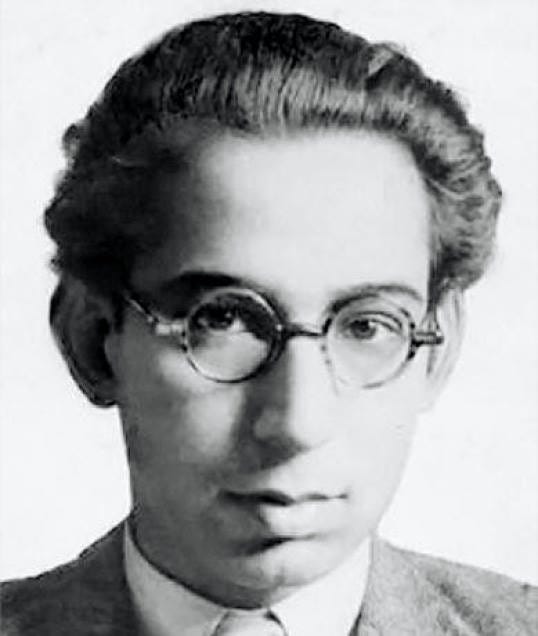
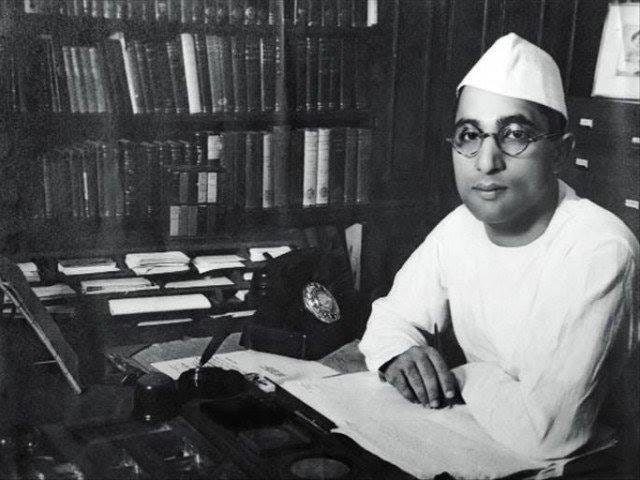
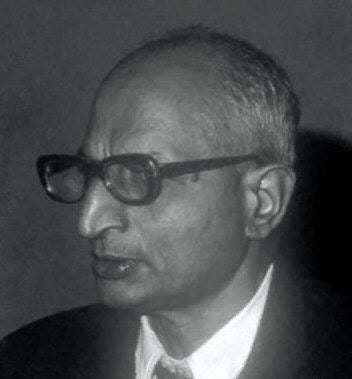
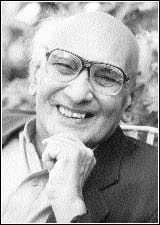
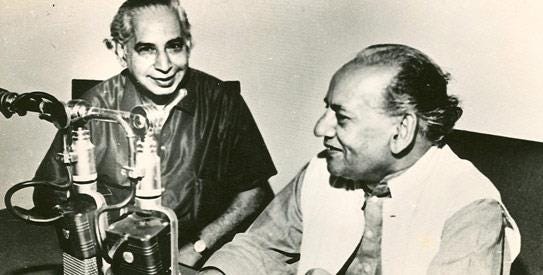
Ye daag daag ujaalaa, Ye shab gaziidaa sahar
Wo Intazaar thaa jiskaa, Ye wo sahar to nahi(n)
Ye wo sahar to nahii Jiskii aarazuu le kar
Chale the Yaar kay mil jaaye gi kahi(n) na kahi(n)
(This blood stained light, this dark-stained dawn,
this is not the destiny we were waiting for.
This is not the Destination towards which
we travelled in hope and anticipation.)
Faiz, “Subhe Azadi”, August 1947.
In the year 1932, Urdu’s literary landscape was jolted by the publication of a collection of short stories aptly titled ‘Angaaray’ (Embers). The topics covered in the stories included gender, sexuality, women’s rights and a critique of religion alongside traditional Indian customs. The publication of this book divided the Urdu literati in two camps. On one side were the naturalists or people who favoured “Art for art’s sake” while the other side believed in “Art for humanity’s sake”. The second group, composed mainly of Marxist Indian students and aspiring writers, formed the All India Progressive Writers Association. Their manifesto was first published in February 1935 in Left Review and the Hindi translation in October 1935. From its inception, the movement had a core group of committed communists but its larger membership was not limited by political ideology. Writers and poets focusing on the miseries of the proletariat and mocking the bourgeoisie and ruling classes joined the movement during that period. The movement was not an offshoot of the CPI but worked closely with the communist party.
Sajjad Zaheer was one of the Indian students at Oxford who became a founding member of the Progressive Writers Movement. He described the movement in the following words: “We can only call that literature successful, that knowledge true knowledge, that art real art, which benefits the tree of humanity, which soldiers against capitalist violence and oppression and is a blessing for the working class.”
After the Partition of India, progressive writers who were based in areas that became Pakistan and those who migrated from India formed the All Pakistan Progressive Writers Association. There was no official presence of the CPI in Pakistan but APPWA worked as a cultural representative of left-wing politics in Pakistan. A new manifesto for writers was issued by the CPI which declared that all writers had to take sides in this new battlefield between the people and the ruling elite; neutrality was not an option. In the post-Partition era, debates about the future of Pakistan were going on in political and cultural spheres.To quote Saadia Toor, “one of the most pitched political/ideological battles of the post-independence period was conducted between two literary camps — the left-wing members of Progressive Writers Association and their liberal anti-communist detractors.”
The liberal writers considered themselves first and foremost as patriots who were committed to putting their energies and talents in service of their new nation-state. They defined this project of nation-building as being incompatible with the socialism and anti-imperialism of Progressives. The Progressives went on the offensive and boycotted writers who deviated even slightly from ‘party policy’. This led to them ostracizing luminaries such as Manto and Noon Meem Rashid. These writers were denied any space in the magazines and newspapers controlled by Progressives. In a 1984 interview, Faiz Ahmad Faiz decried the ‘extremism’ that had gripped the PWA in the early post-Partition years. Faiz was never formally a part of the PWA or Communist Party.
Manto wrote a scathing critique of the Progressive Writers Association and its admirers in one of his essays titled “Jayb-e-Kafan”. He wrote, “What kind of progressives are they, when all they advocate is regressive. Why does their ‘redness’ point towards darkness? How can they be friend of the proletariat when they urge working classes to demand their due rights before starting work? I can’t seem to fathom their innovations through which they want to turn the Ghazal into a machine and a machine into Ghazal. I was fed up of their ever increasing manifestos, their lengthy resolutions. Most of their statements arrived from Kremlin through Mumbai and reached McLeod Road (in Lahore). All they care is what this Russian writer wrote or what that Russian intellectual prophesized. I was frustrated on realizing that these people don’t talk about the land we inhabit. If we have stopped producing intellectuals, is becoming a ‘Red’ the only antidote to this malady?”
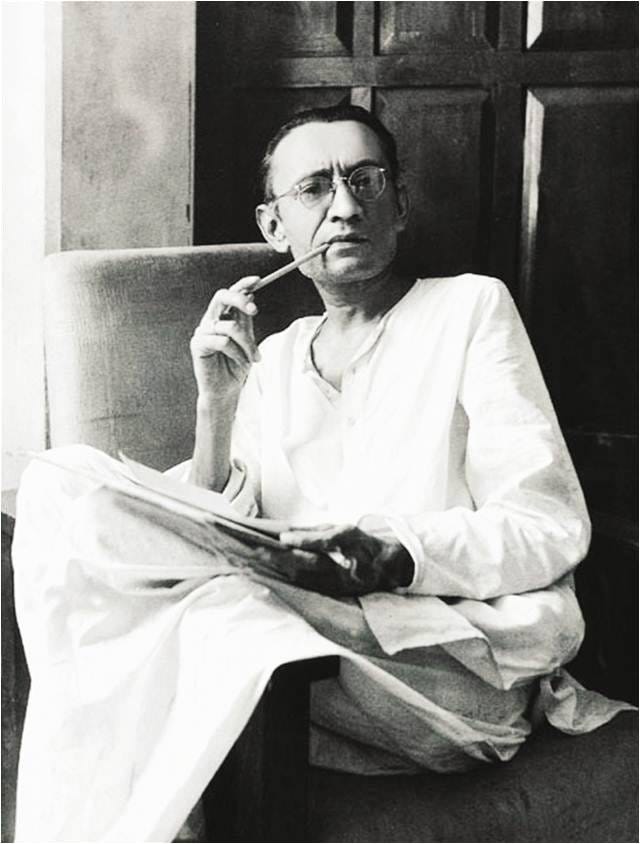
Wo Baat Saray Fasanay Main Jiska Zikr Na tha
Wo baat unhain bohat Na-gawar guzri hai.
(The issue that was not even mentioned in the story
has bothered them the most).
(Faiz, 1951)
In the second post-Partition CPI congress held in Calcutta, three people represented West Pakistan and 32 people represented East Bengal (later named East Pakistan). After the main congress, the Pakistani delegates convened and held the first meeting of a ‘Communist Party of Pakistan’. Sajjad Zaheer was chosen as the General Secretary. Sajjad Zaheer and two other people migrated to Pakistan to run the day-to-day affairs of the new party. After independence, only 1% of Pakistan’s population was working in industry and among those, only 25% were unionized. Apart from engaging in debates about the future direction of Pakistan via the Progressive Writers, the Communist Party of Pakistan motivated labourers to unionize. By 1950, almost 150 unions had been created in East and West Pakistan. Under the party’s tutelage, a Civil Liberties Union, a Peace Committee, a Women’s Democratic Union and a Democratic Youth League were also formed.
Among students, left-leaning students had formed the Democratic Students Federation (DSF) in Karachi and Rawalpindi. While the party didn’t gain enough mass appeal, it focussed on particular areas to conserve its limited resources. Soon after Partition, Pakistan had sent irregular troops into Kashmir but the mission had been aborted after the Raja acceded to India. An adventurous veteran of the first Kashmir war, Major-General Akbar Khan, talked to some people — including the top brass of the Communist Party of Pakistan — about a possible plan to overthrow the government and attack Kashmir again. This foolhardy plan was unanimously rejected by the Communist Party of Pakistan.
But the matter was not to end there, given the Cold War environment.
Following the Second World War, the world was divided into Capitalist and Communist camps led by the United States and the Soviet Union respectively. After Partition, Pakistan was looking for a benefactor to aid its economy and armed forces. A witch hunt was taking place in the United States against communists in Hollywood and the intelligentsia through the House Un-American Activities Committee and Jospeh McCarthy. In an effort to ingratiate themselves with the Americans, Pakistani authorities (in full know of General Akbar’s plan) arrested the General, some other military officers, the top brass of the Communist Party of Pakistan and Faiz Ahmed Faiz. This case became famous as the ‘Rawalpindi Conspiracy Case’. All of the accused were sent to jail but were released after serving less than their sentence. In 1954, Pakistan finally signed a Mutual Defence Pact with the United States. The Communist Party of Pakistan was officially banned in the following month. The Democratic Students Federation was also banned.
Sajjad Zaheer left Pakistan after getting released from jail in 1955. In the absence of a communist leadership, many political activists from the party formed the National Awami Party (NAP) in the 1950s. Students formerly in the DSF joined a new student organization called the National Students Federation (NSF). NAP consisted of political heavyweights from East and West Pakistan. The party opposed Ayub Khan’s martial law in 1958 and supported opposition candidate Fatima Jinnah in the presidential elections held in 1965. After leaving Ayub’s cabinet in the aftermath of the Taskent Agreement with India and before forming his own party, Zulfikar Ali Bhutto wanted to join NAP. Mr. Bhutto was deterred by the fact that the party was not willing to accept him as a ‘leader’ without first coming through the party’s ranks.
NAP split into pro-Moscow and pro-Beijing factions in 1965. The pro-Beijing faction further split and Major Ishaq alongside Afzal Bangash formed the Mazdoor Kissan Party (MKP) — a party of Maoist leanings that fought against entrenched landlordism in Hashtnagar, which is part of today’s Khyber-Pakhtunkhwa province. Many left-wing ideologues, meanwhile, also joined the Pakistan Peoples Party (PPP) founded by Mr. Bhutto and were a vital part of the party. In the 1970s, Pakistan needed benefactors beyond the United States and Mr. Bhutto started envisioning himself as the leader of the ‘Islamic world’. Left-wing ideologues in the PPP were tortured, jailed and abandoned as a result of this paradigm shift. The Progressive Writers Movement failed to have much impact on the literary scene beyond the initial years and wilted completely during the oppressive Islamisation under Zia’s dictatorship. Women’s rights organizations that started in the 1970s consisted of women with mostly left-wing worldviews. The only mainstream left-wing party working in Pakistan is the Awami Workers Party, a coalition of three leftist parties.The Lawyers’ Movement was hijacked in the later stages by right-wing parties and the Chief Justice was only restored after intervention of the military establishment.
The demise of Pakistan’s left has been blamed on many factors, including but not limited to the lack of an industrial base in the country. A former member of the party joked that when the Communist Party didn’t find industrial workers, they started recruiting railway workers (who were government employees). Another frequent criticism is the lack of adaptability shown towards local conditions and political economy while preaching ‘class war’ to people. Despite all these factors, there is still political space for progressive parties with workable ideas. After all, as Faiz would have reminded us, this stained dawn is not what we were waiting for!
No comments:
Post a Comment